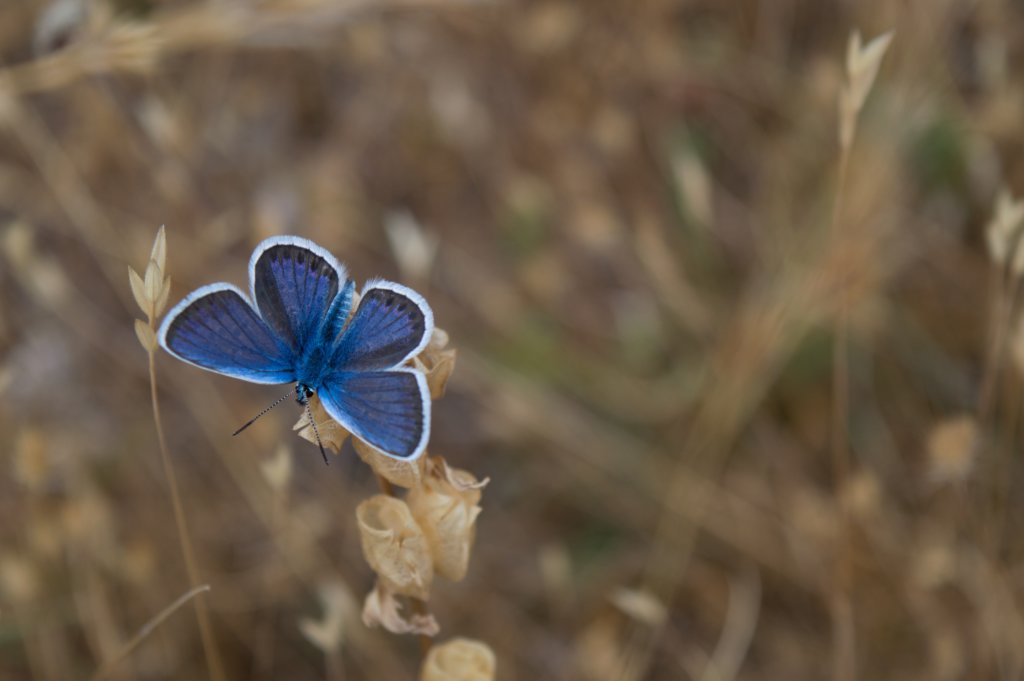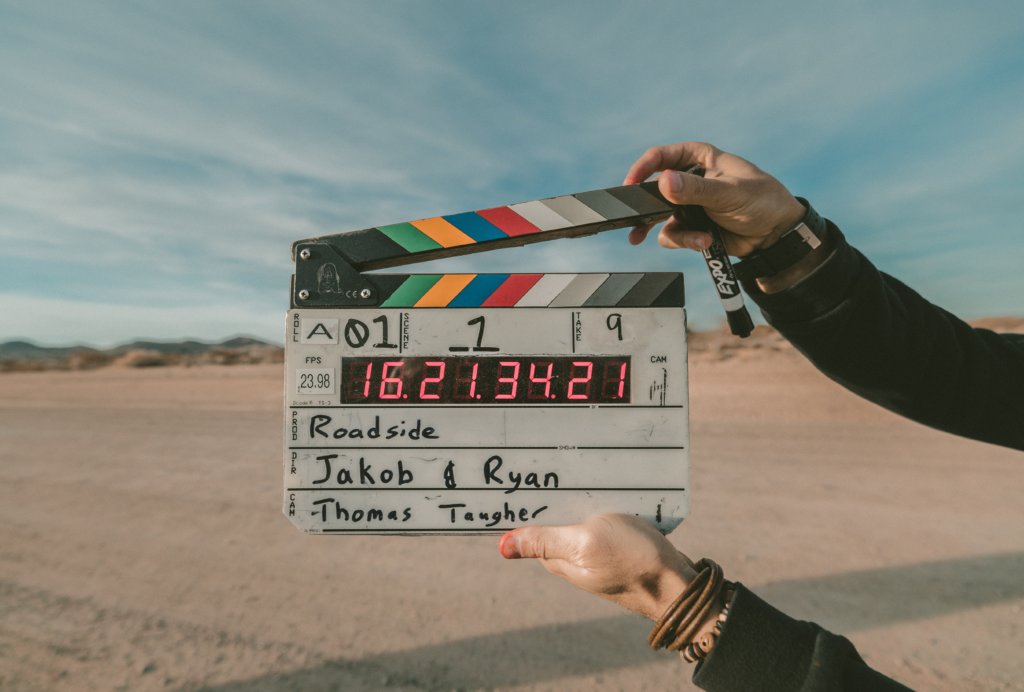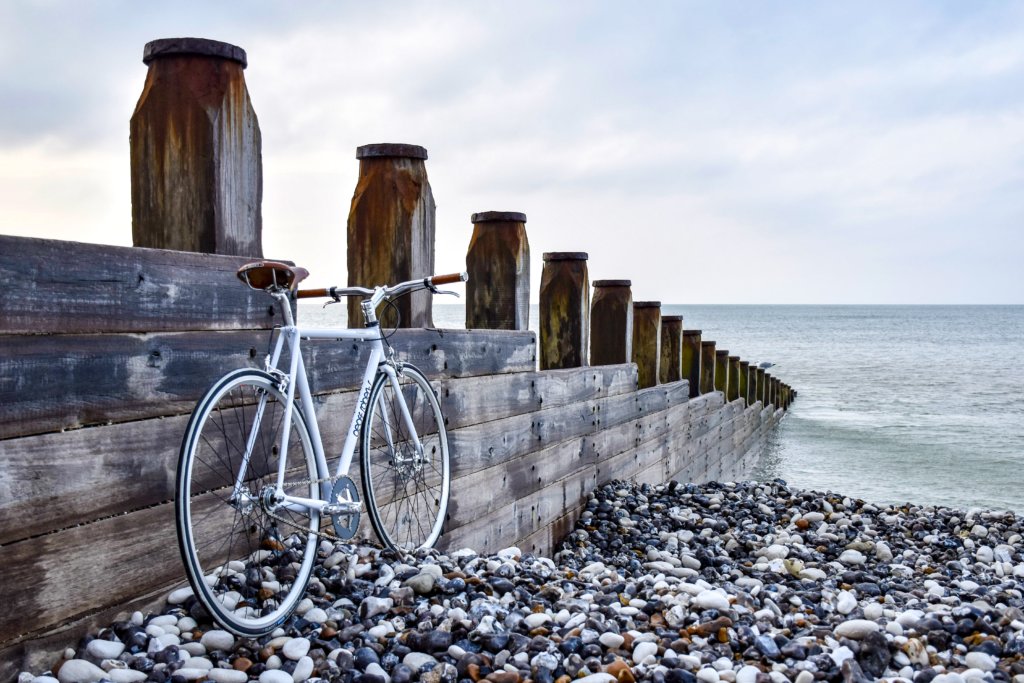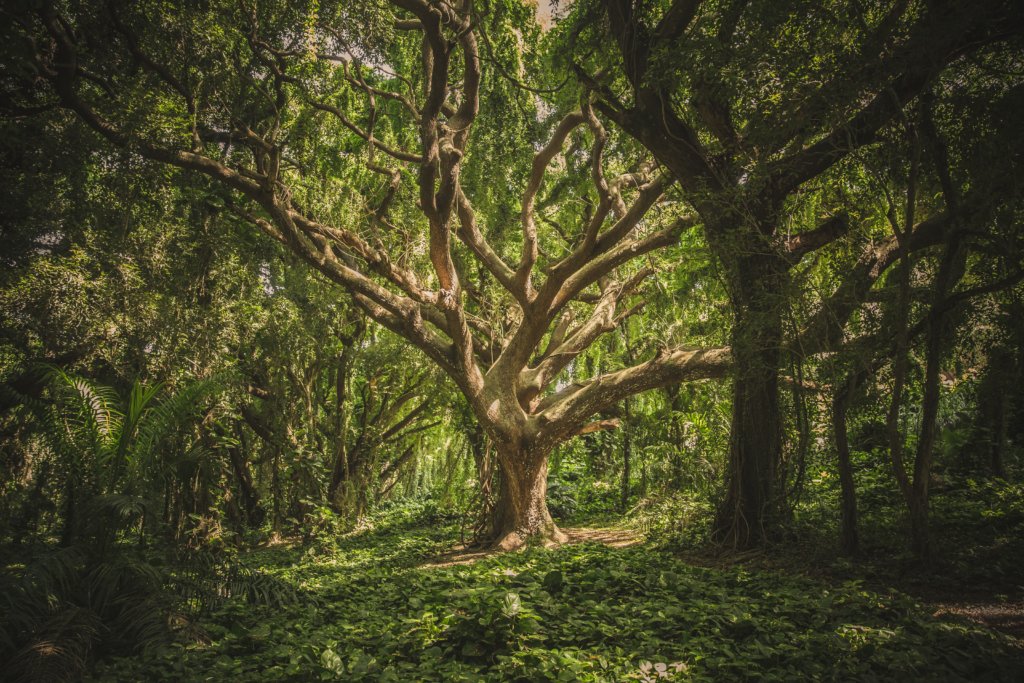As you likely know, famed poet Mary Oliver died recently. Oliver wrote many poems and one, “The Summer Day,” gets quoted frequently. The last two lines are: “Tell me, what is it you plan to do/with your one wild and precious life?”
People regularly use that quote as an aspiration to live life to the fullest, but in the context of the poem, Oliver writes of a person who kneels in the grass and strolls through fields enjoying the summer day, asking, “Tell me, what else should I have done?”
All the poems I’ve read of hers have a certain poignancy as she reflects on the transience of life. But instead of lamenting this fact, she revels in it. I’ve been thinking about the transience of life, not only my own, but also as it relates to climate change.
As I write this, rain streaks down from the sky prompting coastal flood and high-surf warnings. Ice caps are melting. Scientists predict we’re hurtling toward another extinction. It raises fear, anxiety, and nihilism within me. I think about my nieces and nephews and feel sad they won’t experience the Earth the way I have. That they won’t know the wonder of witnessing countless fireflies lighting up a summer night. And yet the time we do have left, the fireflies that are still around, are worth enjoying.
I realize it’s always been true that people die, that one generation experiences something the next does not. But right now I think we’re experiencing a collective grief because we’re all undergoing the same loss at the same time. (However, I have to say some of us are getting hit harder than others.) Our grief is no longer solely personal because the world we live in is going through a metamorphosis. And that metamorphosis makes our lives wild and precious. Our lives are wild and precious because everything matters.
A monk friend of mine describes our spiritual philosophy as exactly that: Everything matters. In materialism, only matter matters. In idealism, nothing matters. But in tantra everything matters. It seems to me more and more of us are taking on that perspective, that everything matters. That everything is important. That everything is valuable and sacred. I’ve used this quote many times before but my spiritual teacher said, “If one ant meets a premature death, it will disturb the balance of the entire cosmos. Therefore, nothing here is unimportant, not even an ant.”
Even a tiny ant matters. From the smallest creature to the largest one, they all matter. And every moment matters as well. Not in a heavy, weighty sense, but rather each moment contributes to our life. The boring ones, the sad ones, the relaxing ones, the adventurous ones. They all make up our existence. They all make up our wild and precious life. If we have a little time left or a lot of time left, we can savor all of it as the beautiful and rare thing it is.
I dream of a world where we realize everything matters. A world where we remember the tiniest creature to the largest one matters. A world where we remember life is fleeting and we do our best to be present to it all. A world where we maintain perspective about our wild and precious lives.
Another world is not only possible, it’s probable.
Right now wildfires besiege California. Tens of thousands have lost their homes and many more have evacuated. Where I live, the weather forecast this weekend was “smoky.” Firefighters are working around the clock to contain the conflagration. The only thing that comes to mind is that quote from Winston Churchill who said, “If you’re going through hell, keep going.” It applies to the people working tirelessly to keep us safe, to the people fleeing for their lives, and to the people unaffected by the blazes.
I’m not a firefighter, but I’m also fighting some battles. Somehow I picked up poison oak on my feet. How that happened is a mystery – likely the one day I sat outside barefoot on redwood leaves they previously touched poison oak. What that means is my right foot in particular looks unhappy. I’ll spare you the details because I get grossed out by those sorts of things, but my doctor assures me with poison oak, it gets worse before it gets better. Right now I don’t really believe her. It’s hard to see my skin returning to normal when things look so bad right now.
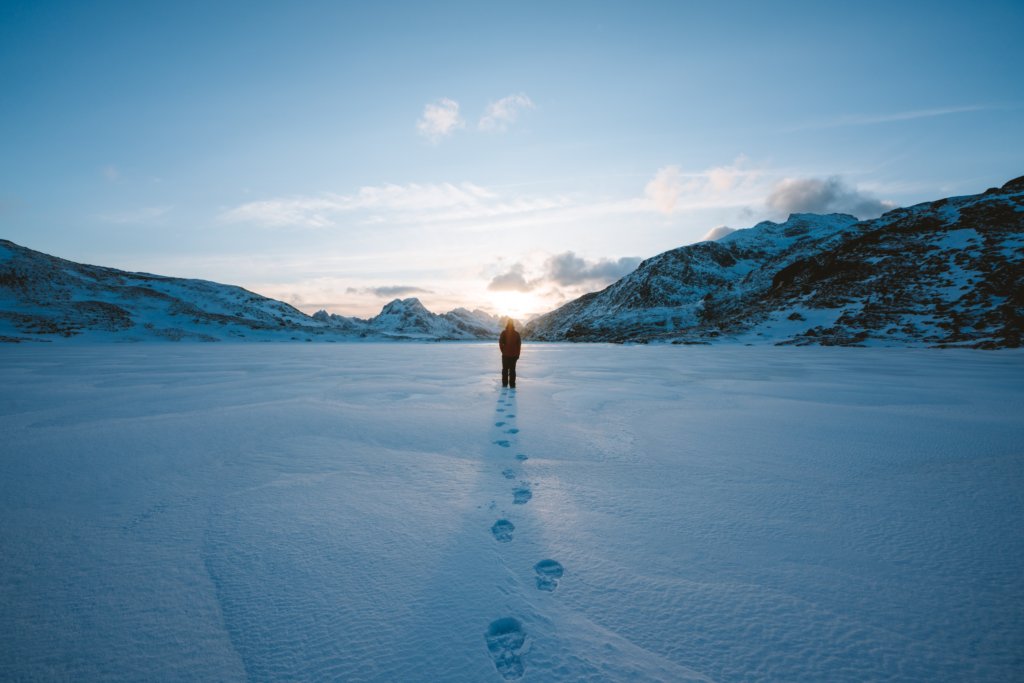
Sometimes life is a matter of putting one foot in front of the other. Photo by Simon Migaj on Unsplash
Similarly, with my novel, I don’t believe I’ll hit 50,000 words at the end of the month. Every day I’m meeting or exceeding the daily word count to reach that goal, but it still seems nigh impossible. Why is that? Because I’m in the thick of things. I’m continuing to battle and the tide hasn’t turned yet. I could stop. We all could. We all could give up, surrender, admit defeat. But where does that leave us?
I also want to acknowledge here it’s difficult to keep fighting. It’s difficult to continue moving forward when the task before us seems overwhelming. I don’t envy the firefighters in California right now, nor do I envy anyone confronting a battle of their own. But I support them, and myself, and everyone else. I will keep cheering from the sidelines as many are doing for me. And I will hold out hope for the fire to die and the smoke to clear, just like it has where I live. I don’t know what the future holds, but on Sunday morning, I looked out my window and saw a blue sky above the smoke layer for the first time in days. May we all see blue skies literally and figuratively sooner rather than later.
I dream of a world where we keep fighting when the situation calls for it. A world where we understand sometimes it takes a while before the tides turn and victory is in sight. A world where we cheer each other on as we all go through our own versions of hell. A world where we keep going.
Another world is not only possible, it’s probable.
Life and death have been on my mind lately because two people in my community have died in the past three weeks. I notice in myself and others a tendency to ward off death as much as possible. We do what we can to prolong life because we fear death. Not only death in the physical realm, but in other arenas as well. We stay in dysfunctional relationships, jobs we hate, cities we loathe. We avoid going to therapy or addressing our addictions. We do all this because endings are scary, even if we know they’re warranted.
Right now I’m reading Clarissa Pinkola Estés’ Women Who Run With the Wolves. In it she addresses the wild woman archetype and tells stories to illustrate certain concepts. One of the more famous ones is the ugly duckling tale. The story that speaks to me the most right now is that of the Skeleton Woman. Click the link for an animated version of the story, but the abbreviated version is a fisherman hooks a skeleton woman and not realizing she is caught on his line, tries to run from her. He bumps along the land with the woman on his tail and dives into his hovel thinking he’s safe. Alas, it is not so. She is inside his home, limbs akimbo. In the candlelight he takes pity on her, untangling her from his line, righting her limbs. Then he falls asleep and a tear leaks from the corner of his eye, which the Skeleton Woman drinks up thirstily. While he’s still sleeping, she pulls out his heart, holds it in her hand and flesh is drummed back onto her bones. She becomes a human again. She returns his heart and then falls asleep next to him, and “that is how they awakened, wrapped one around the other, tangled from their night, in another way now, a good and lasting way.”
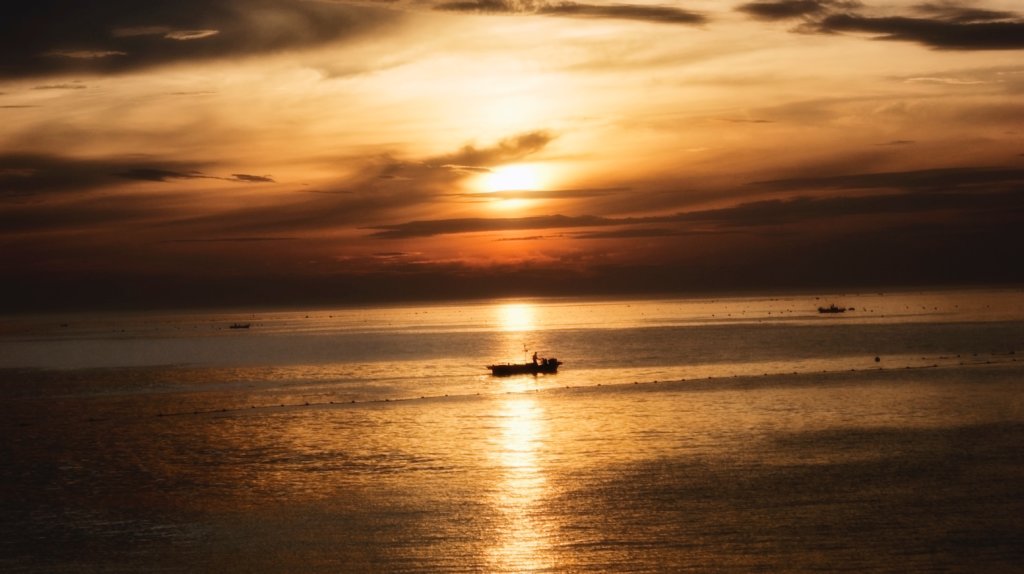
Whenever we catch something new, the Skeleton Woman is on the end of the hook. Photo by Lim changwon on Unsplash
Estés asserts for any relationship to survive and thrive, people must reckon with Lady Death, which is what the Skeleton Woman represents. They must welcome her into their home, tend to her, make peace with her in order to breathe life into something new. I think the principle applies not only to relationships, but all things. We must make peace with the fact a beginning will have an ending, followed by another beginning. I constantly forget that. When I experience an ending, some part of me still tries to hold on, as I wrote about last week.
On Saturday, I witnessed first-hand new life springing from death. I attended a grief ritual where I cried with others as they held me and I held them. I cried for someone I barely knew and I cried for things I couldn’t articulate. I bonded with people I only know in passing and felt a new closeness to them. All around me I observed a deepening of love for each other. A group of people that otherwise likely wouldn’t have met. I viewed new life springing from tragedy. Do I wish we’d met in another context? Absolutely. And at the same time, death helped create something new. The more I give into and accept the life/death/life cycle, the more serene I feel. The less scared I am of the future and what could happen because I understand death will always bring something new.
I dream of a world where we embrace the life/death/life cycle. A world where we no longer fear death as something permanent and final, but instead see it as the precursor to something new. A world where we mourn, we grieve, and we accept we’ll always have to confront death in some form or fashion. But it doesn’t have to be as scary as we are led to believe.
Another world is not only possible, it’s probable.
Right now I’m editing a re-translation of a philosophy book for my yoga and meditation group. It’s engrossing stuff (for me) because I’m curious about how the world works. I’m always interested in the “why” of everything and this book is answering many questions. One of the tenets, which is also a law of nature, is that for every action, there is an opposite and equal reaction. Something I find fascinating is the book talks about how inescapable that is.
My spiritual teacher says some people will pray to escape the consequences of their actions, or perform rituals to appeal to the gods, but it’s not possible. All that can happen is a delay, like paying back a loan. You can set the terms for 18 months or three years, but the loan will be repaid. Also, for the purposes of this post I won’t address miracles, like when a person was supposed to die but their life was saved. I’m speaking in general terms about how both good and bad, our actions have consequences.
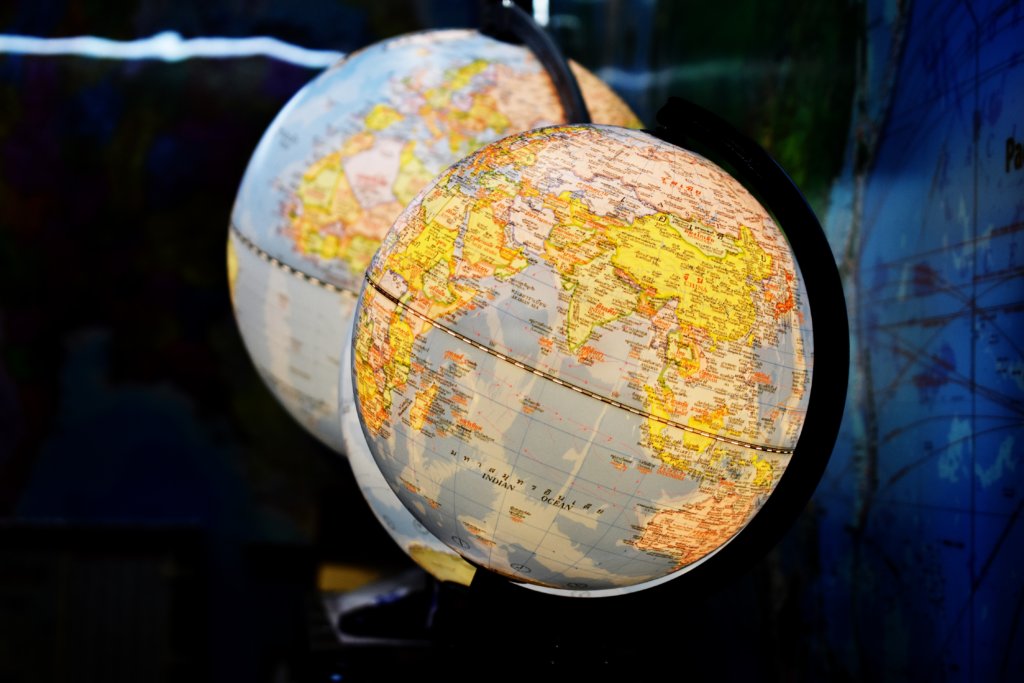
Globes seemed like the perfect image to illustrate this post. Photo by Duangphorn Wiriya on Unsplash
In looking at our current president, I see life catching up to him. The noose is tightening around his neck, so to speak. The evidence continues to mount regarding Russia meddling with the U.S. election to place him into power. Trump is being exposed for all his wrongdoings like laundering money, assaulting women, etc. In some ways it seems like he’s untouchable because we’ve known these things for years, and yet he remains not only free, but still in power. It boggles the mind, and personally, boils my blood.
I’m reminded here that what goes around comes around. One of the other things the philosophy book mentions is that not all consequences manifest during the lifetime in which they incurred, meaning sometimes they manifest in another life. However, no one is invulnerable. No one can escape their fate, no matter how many people they pay off.
I realize this post isn’t very sunshine-y but that’s where I’m at today, feeling somber. I’m thinking about how people, myself included, want to lie for self-preservation. How it’s easier to say, “I didn’t do that,” rather than admit the truth and deal with the repercussions. The repercussions aren’t always fun, but they will catch up to us eventually. That’s why my spiritual teacher cautions taking good actions. Good actions result in good consequences and bad actions result in bad consequences.
In the short term we may benefit from lying, cheating, and stealing, but in the long run we will not. I’m reminded of that quote from John Wesley who said, “Do all the good you can. By all the means you can. In all the ways you can. In all the places you can. At all the times you can. To all the people you can. As long as ever you can.” Words to live by.
I dream of a world where we realize our actions have consequences. A world where we understand we can’t run away from repercussions. A world where we try our best to do all the good we can by all the means we can. A world where we remember what goes around comes around and we act accordingly.
Another world is not only possible, it’s probable.
I’ve been asking myself what can I contribute to the conversations surrounding Anthony Bourdain’s and Kate Spade’s suicides? Much has already been said about seeking help; how that’s easier said than done what with costs and budget cuts; and instead of putting the onus on a depressed or suicidal person to reach out, to reach out when we see people struggling. I agree with all those things. And after reading an article in USA Today by Kirsten Powers about how we also have a cultural problem, I realize where I can contribute.
In her article, Powers asserts many people are struggling to find meaning and purpose in a society that values materialism. On top of that, many feel alone, isolated, and misunderstood. All of those factors play a part in suicide. I think the best thing I can do with this blogpost is to remind people, myself included, that we matter.
According to a Buddhist text, one day the Buddha spoke to a group of monks. He said, “Monks, suppose that this great Earth were totally covered with water and a man were to toss a yoke with a single hole into the water. A wind from the west would push it east; a wind from the east would push it west; a wind from the north would push it south; a wind from the south would push it north. And suppose a blind sea turtle were there. It would come to the surface only once every 100 years.
“Now what do you suppose the chances would be that a blind turtle, coming once to the surface every 100 years, would stick its neck into the yoke with a single hole?” And the monks answered, “It would be very unusual, sir, that a blind turtle coming to the surface once every 100 years would stick its neck into the yoke.” And the Buddha replied, “And just so, it is very, very rare that one attains the human state.”
That’s pretty incredible if you think about it, and it reminds me my life is precious. That I’m even alive in human form is like winning the lottery. I’m further reminded of this because I know several people who struggle with infertility. Conceiving a child is not as easy as it may seem. In fact, in my own family, my parents tried to get pregnant for three years before my brother came along.
I also think about how both Kate Spade and Anthony Bourdain impacted people. The number of tweets, articles, and facebook comments from people mourning their deaths is staggering. No one exists in a vacuum. Everyone will be missed by someone, including a pet, when they die. That means your life, my life, it matters. It has worth and value and merit. It is not without meaning or purpose even if sometimes it feels that way. I don’t know a lot of things, but I know we are all loved and we all matter.
I dream of a world where we realize how precious and rare our lives are. A world where we feel into how much we matter, how much we are loved. A world where we realize we impact people, sometimes without our knowledge. A world where we know when we die, we will be missed.
Another world is not only possible, it’s probable.
I think it’s pretty clear I want to be famous. Not “get my picture taken while eating a hamburger in a car” famous, but “win awards and have people share my content” famous. I know fame doesn’t make anyone happy, I know the goal of my life is not fame, I know aiming for fame goes against all of my spiritual beliefs, and yet it’s still here.
I’ve wrestled with this aspect of myself for decades trying to reason with it, spin it, battle it, push it away. But it’s still here. On Wednesday, I listened to a radio show loosely about surrender and I burst into tears because I finally accepted this part of me. To surrender means to stop fighting and I stopped fighting this aspect of myself. I also started journaling about it, asking why I care so much.
I seek fame because I want to prove myself, I want to showcase my “enough-ness.” I spoke with a friend about this and he suggested I make a list of all the ways I’ll finally be enough. I’ll be enough when _____. I made my list: “I’ll be enough when I’m a bestselling author. I’ll be enough when I go on Oprah. I’ll be enough when a celebrity retweets me.” I kept going until I reached the point when I wrote, “I’ll be enough when I feel worthy.”
As if to hammer the point home, I listened to another radio show by Nancy Levin, who used to be the events coordinator at Hay House before she transitioned into writing and coaching. To paraphrase, she said nothing on the outside will make you feel worthy if you don’t feel worthy on the inside. I know this. In fact, I’ve written this. But when I look back at my post on self-worth from nearly nine years, I hear a lot of judgment. A lot of dismissing. I didn’t honor my desire then or now.
When I look at the basic philosophy of my spiritual tradition, I have more perspective. The philosophy states we take everything and channel it toward the divine. It sounds like a lovely sentiment, but what does that actually mean? I’m not sure I know, but what I’m starting to understand is I can’t run from anything, including my desire for fame. I can’t escape anything. Maybe to use everything as a vehicle toward my unification with a power greater than myself means first that I have to accept what is here in a loving, compassionate way.
This blogpost deals with my desire for fame, but the concept is applicable to anything. It could be the part of ourselves that’s scared of others, or is greedy, or ashamed, or whatever. We can’t pretend that side doesn’t exist as much as we’d like that to be the case. We have to work with what’s here in order to have any power over it. I’ve likely used this quote before, but Carl Jung said, “Until you make the unconscious conscious, it will direct your life and you’ll call it fate.” I’d rather be an active participant in my fate and the only way to do that it seems is to stop running from the things I don’t like.
I dream of a world where we accept all parts of ourselves with compassion. A world where we realize just because we don’t like something doesn’t mean it goes away. A world where we embrace our inherent tendencies and still work to transform them into something else. A world where we channelize them toward something greater than ourselves.
Another world is not only possible, it’s probable.
Right now some things are very uncertain and all I can think about is this post from July 2016 so I’m sharing it again.
“Do not set your eyes on things far off.” – Pythian Odes
I’ve had at least four people mention to me some iteration of, “What are the gifts where you are?” so it seemed like a good post to write today.
I am deeply unhappy about a few things in my life. There are a few things I want to change and they aren’t changing fast enough, darnit. It’s easy for me to peer ahead, to fantasize about the future, and then get frustrated when the future is not my present reality. I’ve had so much resentment this week about that and accordingly, people keep asking me to practice gratitude for where I am.
It didn’t go well because I don’t want to practice gratitude for where I am. I don’t want to see the gifts from my current situation. I’d much rather live in the imagined future where my dreams have come true, thank you very much. But here’s the icky thing: I’m not there. As much as I want to be, do, or have something else, that’s not this present moment. And because I don’t enjoy this present moment, it means my compulsions have kicked up. I keep checking facebook, email, and instagram to pull me from the here and now because I’m not enjoying the here and now.
As you can imagine, my compulsions haven’t solved anything either.
I experienced a shift when I asked myself, “What if I viewed this situation as temporary? What if I knew it would end?” Somehow that made all the difference. For me, whatever I’m experiencing now, I think I’ll experience forever. It’s hard for me to keep in mind this too shall pass, and it’s the notion there isn’t an endpoint that causes me so much distress. When I know there’s an endpoint though, everything becomes more bearable. And when I know there’s an endpoint, I can start to see the gifts of my current situation. I view things differently and understand this is a period where I’m being given the opportunity to cultivate whatever, fill in the blank, and I get myself back to a place of gratitude.
I know this is a vague post but that’s because I’m not ready to discuss the specifics in a public forum, but I think the lesson is a good one. How often do we view our present situation as interminable? How often do we think the way things are will be the way things continue? It’s helpful for me not to say to myself, “This too shall pass,” because, great, glad to know maybe when I’m 95 this will pass, but instead to affirm this has an endpoint because it does. When I know there’s an endpoint, I can quit asking, “When will this be over?” Staying present can be difficult sometimes, but maybe if we knew there will be an end, staying present would be easier.
I dream of a world where we’re able to focus on the here and now, even if we don’t like it. A world where we understand all things are temporary. A world where we do our best to stay present because we understand each experience or period has something for us to mine.
Another world is not only possible, it’s probable.
Let’s talk about slavery and guns. I know! The light and easy topics! The other day, an infographic swirled around facebook showing American slavery lasted for 246 years and segregation lasted for 89. In the scheme of things, the years since the end of segregation are minuscule. It’s hardly any time at all. Generation after generation after generation was born into slavery. I’m sure at the time it seemed like slavery would last forever, and for many it did. They spent their entire lives as slaves. And now for the modern-day person, we look back and shake our heads, saying, “I can’t believe it took that long.” I think the same will be true with gun violence.
Christopher Reeve said, “So many of our dreams at first seem impossible, then they seem improbable, and then, when we summon the will, they soon become inevitable.” I won’t say I’m confident in the inevitability of gun control, but I’d like to be. I think about the generations of slaves who thought for sure slavery would last forever and still took steps to fight against it. The tireless men and women who said, “No, we won’t stand for this,” and then did something. It took a loooong time and obviously we still have problems with racism in this country, but things changed. That gives me hope.
What also gives me hope are the teenagers from Parkland, Fla., who are saying, “We will not stand for this.” On the 17th, they held a rally in protest. Emma Gonzalez, a student from the Marjory Stoneman Douglas High School, the site of the most recent school shooting, gave a speech. She called for new gun restrictions, blasting President Trump, the National Rifle Association, and lawmakers for what she called their self-serving and ultimately hollow responses to the shooting. Many students held signs demanding new action on gun control. “My friend died for what?” read one sign. “Stop gun violence now,” read another.
Also, the organizers behind the Women’s March have called for a national school walkout next month to protest what they say is congress’s tacit response to mass shootings. The walkout on March 14 is set to last 17 minutes, and will seek to pressure lawmakers “to do more than tweet thoughts and prayers in response to the gun violence plaguing our schools and neighborhoods,” the group said on its website.
I don’t know if these actions will accomplish anything. I don’t know if congress will immediately pass stricter gun regulations, or if they’ll heed the siren’s song of gun lobby money. We could have another 50 years of mass shootings before us, or not. What I do know is change is inevitable. And I also know change doesn’t just happen, we have to push for it.
Frederick Douglass said, “I prayed for freedom for 20 years, but received no answer until I prayed with my legs.” I’m with you Frederick. Let’s pray with our legs. Eventually, inevitably, things will be different, and our descendants will look back at this time, shake their heads, and say, “I can’t believe it took that long.”
I dream of a world where we remember things can change, do change, and will change. A world where we remember the veracity of Christopher Reeve’s quote, that after we summon the will, certain changes are inevitable. I dream of a world where they happen sooner rather than later.
Another world is not only possible, it’s probable.
The other day my Lyft driver said the word “thug” with so much derision it sounded like a slur. Frankly, I think that’s how he meant it. He also praised a town in California that restricts the number of residents by not building any new dwellings, and the town would rather pay penalties than allow section eight housing. What astounds me is this guy presumably thinks society would be better off if all towns quarantined the poor and people of color as if they were deadly viruses.
I understand this already happens to a large degree – many places stratify according to socioeconomics and/or ethnicity – but it’s shortsighted and unnatural. I read a fascinating article about trees the other day. Did you know a tree can be only as strong as the forest that surrounds it?
Neighboring trees help each other through their root systems either directly, by intertwining their roots, or indirectly, by growing fungal networks around the roots that serve as a sort of extended nervous system. Why do they do this? According to German forester Peter Wohlleben, it’s because like in human communities, there are advantages to working together. He said:
“A tree is not a forest. On its own, a tree cannot establish a consistent local climate. It is at the mercy of wind and weather. But together, many trees create an ecosystem that moderates extremes of heat and cold, stores a great deal of water, and generates a great deal of humidity. And in this protected environment, trees can live to be very old. To get to this point, the community must remain intact no matter what. If every tree were looking out only for itself, then quite a few of them would never reach old age. Regular fatalities would result in many large gaps in the tree canopy, which would make it easier for storms to get inside the forest and uproot more trees. The heat of summer would reach the forest floor and dry it out. Every tree would suffer.
“Every tree, therefore, is valuable to the community and worth keeping around for as long as possible. And that is why even sick individuals are supported and nourished until they recover. Next time, perhaps it will be the other way round, and the supporting tree might be the one in need of assistance.”
It seems so obvious, noting at one time or another we may be in need of assistance, yet somehow it’s not. We praise rugged individualism in the U.S. as if that’s a good thing. We pretend a person can be separated from others and thrive. Human beings are social creatures, we need other people to survive, yet we operate as if the problems of those down the street have nothing to do with us, as if there is an “over there” and an “over here.” We are already living in a community, we are all already sharing the same resources, and in order for us all to thrive, it’s important we remember that. And that’s the sort of world I want to live in.
I dream of a world where we remember we are all in this together. A world where we realize isolating ourselves from problems doesn’t make them go away. A world where we remember we can only be as strong as the community around us. A world where we realize a tree is not a forest and a human is not a community.
Another world is not only possible, it’s probable.
As I contemplate President Trump’s recent comments about “shithole countries” and the upcoming birthday of Martin Luther King Jr., I can’t help but wonder what it means to be a leader because one I think of as a leader, and the other I do not. In the past, I would have told you a leader is a person in charge, but as I’ve gotten older, I’m realizing how false that is. A person may be in charge due to privilege or nepotism or a host of other reasons, and not be what I call a leader.
The answer to the question, what is a leader, also changes depending on the circumstances. A leader could be someone with the most physical prowess or keen intellect. These days? It seems the majority of our supposed leaders are those with money or privilege. Furthermore, those in power seem more interested in exploitation and personal gain than the welfare of society as a whole.
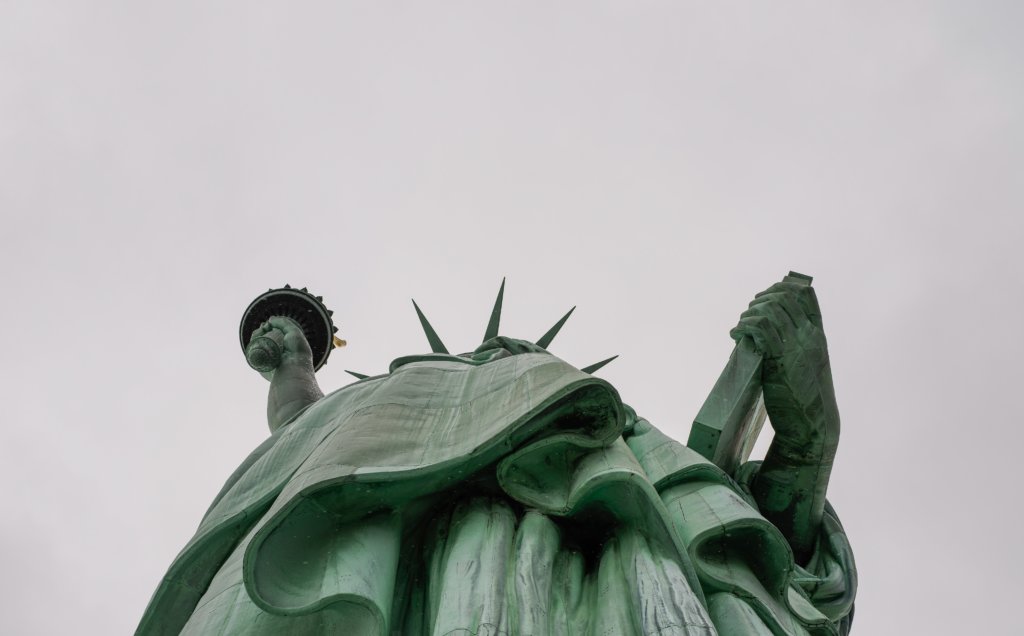
This image seemed the most appropriate. Photo by Annie Spratt on Unsplash.
According to my spiritual teacher, this is the cycle of social evolution, where one particular class enjoys domination and superiority over another. By class, he means the laboring class, the warrior class, the intellectual class, and the merchant class. And each class rises and falls over time in a process that cannot be halted.
“The function of a [leader] shall, therefore, be to see that the dominating or the ruling classes do not have any scope for exploitation,” he said. “The moment one class turn into exploiters, the life of the majority becomes miserable; a few enjoy at the cost of many whose lot is only to suffer. More than that, in such a state of society both the few and the many get degenerated. The few (exploiters) degenerate themselves due to [an] excess of physical enjoyments, and the many (exploited) cannot elevate themselves, because all their energy is taken up in mundane problems …. Hence, for the physical, mental, and spiritual welfare of the administrator and the administered of the society as a whole, it is essential that no one be given any scope to exploit the rest of the society.”
Leaders then are active participants, they are like watchdogs, keeping an eye on signs of exploitation and then doing something about it. It seems to me, the primary quality of a leader is someone who is concerned with the well-being of humanity as a whole. A leader is not someone who cares only about their selfish pleasures. I won’t speak for everyone, but I’ll say for myself, I have an expectation a leader will swoop in out of nowhere and save us all. And furthermore, that a leader possesses skills and qualities that I do not. Like they’re magical beings while I’m a mere human. Is that true though?
Vince Lombardi said, “Leader’s aren’t born, they are made.” That means we all possess the potential to be leaders. We all have the power to change something, to do something. We may not all trigger systemic change like Rosa Parks, but maybe. We’ll never know if we don’t try.
I dream of a world where we recognize we all have the potential to become leaders. A world where we understand leaders are not necessarily those in power and could be anyone, including us. A world where we each do our part to shepherd humanity toward a brighter tomorrow.
Another world is not only possible, it’s probable.
